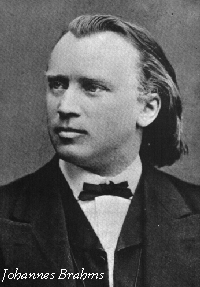This was Schumann's final contribution to the Neue Zeitschrift für Musik. He was clearly thinking of how the battle he was waging could be continued after he was gone, as are we. We present this original translation on the occasion of Schumann's 200th birthday, June 8, 2010.
New PathsYears have gone by - nearly as many as I had previously dedicated to the editing of these pages, namely ten -, since I last was heard from in this terrain, so rich in memories. Often, despite intensive productive activity, I felt stimulated; many new, significant talents appeared, a new force in music seemed to announce itself, to which many of the emerging artists of recent times bear witness, even if their productions are mostly known to a small circle.(1) I thought, following the paths of this elect with the greatest interest, that in this process there should and must suddenly appear one that were called to give voice to the highest expression of the times in an ideal way, one who would bring us mastery not in gradual developments, but rather, like Minerva, should spring fully armored from the forehead of Zeus. And he is come, a young blood, over whose cradle graces and heroes kept watch. He is called Johannes Brahms, came from Hamburg, creating there in dark tranquility, but instructed in the most difficult precepts of Art by a felicitous and enthusiastic teacher, who had been recommended to me previously by a known and venerated master. He bore, as well in his outward appearance, every sign that would announce to us: this is a chosen one. Sitting at the piano, he began to reveal wonderful regions. We were drawn into ever more magical spheres. There came about an entirely brilliant performance, that made the piano into an orchestra of lamenting and jubilant voices. There were sonatas, more veiled symphonies, - songs, whose poetry one would understand without knowing the words, although a deep song melody runs through everything, - particular piano pieces, of a partly demonic nature from the most gracious form, - then sonatas for violin and piano - quartets for strings - and each so different from the other, that they seemed to stream from every possible source, and then they appeared, as he united them, as one roaring current, all as to a waterfall, bearing the peaceful rainbow over the downrushing torrent, where butterflies play about its banks to the accompaniment of nightingale voices. If he were to wave his magic wand where the massed powers of the chorus and orchestra lend him their force, even more wonderful glimpses into the mysteries of the spirit world would be in store for us. May the highest genius lend him strength, for which the prospects are good, for another genius, that of modesty, dwells within him. His comrades greet him upon his first journey through the world, where wounds perhaps await him, but also laurels and palms; we welcome a strong champion in him. In every era there presides a secret alliance of kindred spirits. Ye who belong together, close your ranks ever more tightly, that the Truth of Art may shine more clearly, diffusing joy and blessings over all things. Footnotes (1) I have in mind here: Joseph Joachim, Ernst Naumann, Ludwig Norman, Woldemar Bargiel, Theodor Kirchner, Julius Schäffer, Albert Dietrich, not forgetting the profound spiritual composer C. F. Wilsing, so solicitous of great art. As spry forerunners Niels W. Gade, C. F. Mangold, Robert Franz and St. Heiler should also be named. |

